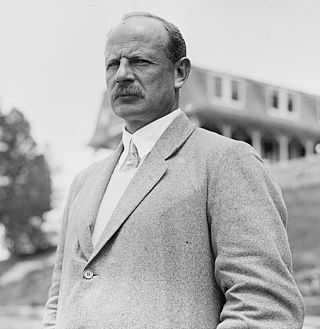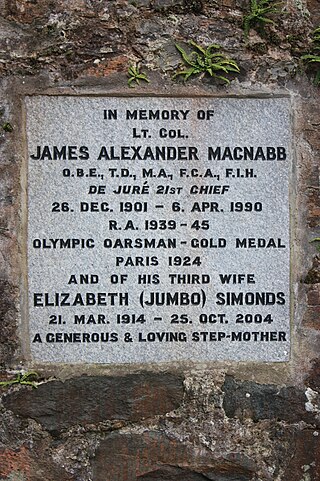Related Research Articles

Sir Joseph William Chitty was an English cricketer, rower, judge and Liberal politician.

Henley Royal Regatta is a rowing event held annually on the River Thames by the town of Henley-on-Thames, England. It was established on 26 March 1839. It differs from the three other regattas rowed over approximately the same course, Henley Women's Regatta, Henley Masters Regatta, and Henley Town and Visitors' Regatta, each of which is an entirely separate event.

The Temple Challenge Cup is one of the eights races at Henley Royal Regatta at Henley-on-Thames on the River Thames in England. It is open to male crews from universities, colleges or schools. Combined entries from two colleges of the same university, or from different schools, are allowed.

Ewart Douglas Horsfall MC was a British rower who competed in the 1912 Summer Olympics and in the 1920 Summer Olympics.

Charles Desborough 'Don' Burnell, was a British rower who competed in the 1908 Summer Olympics.

Duncan Mackinnon was a British rower who competed in the 1908 Summer Olympics. He was killed in action during the First World War.

Guy Nickalls was a British rower who competed in the 1908 Summer Olympics as a member of the British eight that won gold, won 22 events at Henley Royal Regatta and won the Wingfield Sculls three times.
Guy Oliver Nickalls, also known as Gully Nickalls, was a British rower who competed in the 1920 Summer Olympics and in the 1928 Summer Olympics.

James Alexander MacNabb was a British rower who competed in the 1924 Summer Olympics.
Robert Erskine Morrison was a British rower who competed in the 1924 Summer Olympics.

Brasenose College Boat Club (BNCBC) is the rowing club of Brasenose College, Oxford, in Oxford, England. It is one of the oldest boat clubs in the world, having beaten Jesus College Boat Club in the first modern rowing race, held at Oxford in 1815. Although rowing at schools such as Eton and Westminster School Boat Club predates this, the 1815 contest is the first recorded race between rowing clubs anywhere in the world.

Walter Bradford Woodgate was a British barrister and oarsman who won the Wingfield Sculls three times, and various events at Henley Royal Regatta including the Silver Goblets five times and the Diamond Challenge Sculls once. He founded Vincent's Club as an undergraduate at Brasenose College, Oxford, in 1863, and in 1868 created the first coxless four by persuading Brasenose's cox to jump overboard after the start of Henley's Stewards' Challenge Cup.
Frederick (Freddie) Islay Pitman was a British rower who rowed in the Boat Race three times and won the Diamond Challenge Sculls and the Wingfield Sculls in 1886.
Kenneth Martin Payne was a British rower who competed in the 1932 Summer Olympics.
William Henry Milman (1824–1908) was an English rower, clergyman and librarian who was president of the Oxford Union and of Sion College.
George Quinlan Roberts was a Tasmanian-born rower who won events at Henley Royal Regatta in the 1880s. He later served as chief secretary of St Thomas' Hospital in London from 1903 to 1928.
Mark Haggard was an English clergyman and rower who won events at Henley Royal Regatta.
Walter Francis Short (1832–1910) was an English academic, schoolmaster, clergyman and rower.
David Edward Brown was a British rower who won several events at Henley Royal Regatta in the 1880s.
David Michael Jennens was an English rower who competed for Great Britain in the 1952 Summer Olympics. He was a medical doctor.